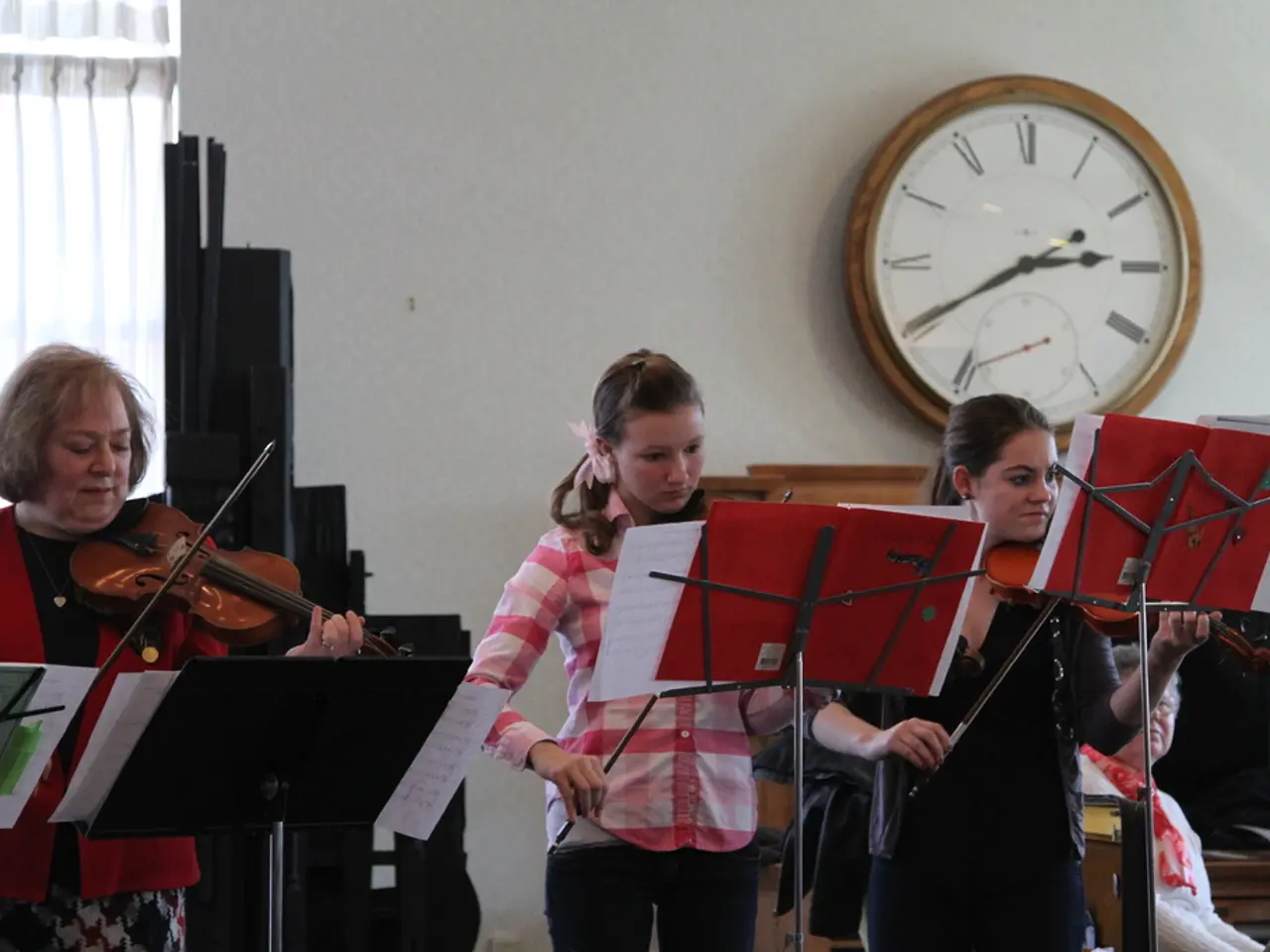Berlin's Roma-Sinti communities asserting their presence in the German theater scene
The city of Berlin is witnessing a significant shift in its cultural landscape, with the Volksbühne becoming Europe's first Roma-hosted theatre space since September 2022. This move marks a momentous step forward in recognising and celebrating the rich history and culture of the Roma and Sinti communities.
Under the leadership of Shermin Langhoff, the Maxim Gorki Theatre has long served as a base for Roma and Sinti theatre. This tradition continues at the Volksbühne, which is now being established as a locus of Roma and Sinti performance and life in Berlin.
The Romaday Parade, an annual event in honour of International Roma Day, will take place at the Volksbühne on April 8. This year's parade will end at the Volksbühne's main stage instead of the Grüner Salon, reflecting the growing importance of this venue in the Roma and Sinti community.
The Volksbühne's programme includes a powerful performance titled "Noncia Alfreda: Heldin des Widerstands" ("Noncia Alfreda: Heroine of the Resistance"), staged by the Rom*nja Power and RomaniPhen collectives in January. The piece aimed to fill gaps in German public discourse regarding the invisibility of Romani experience in World War II, focusing on the deeds of Noncia Alfreda Markowska, a Polish Romani woman who saved scores of children during the war.
However, the cultural landscape of Berlin is not without controversy. The Tiergarten memorial, a poignant tribute to the murdered Sinti and Roma of Europe, is scheduled to be temporarily closed for an S-Bahn tunnel construction. Designed by Israeli artist Dani Karavan, the memorial recognizes the ongoing life and mourning of Romani and Sinti peoples, with a daily ritual of placing a day-old flower on the island at the pool's centre to symbolize the continuity of memory and life.
The closure of the Tiergarten memorial has been highly contested, with disagreement among Roma and Sinti organizations. Dani Karavan himself was against the plan, expressing his concern that the closure would disrupt the memorial's powerful message. The Central Council of German Sinti and Roma, however, has supported the project, justifying their decision by declaring that it would not increase anti-Roma sentiment.
Despite these challenges, the Roma and Sinti community in Berlin is taking centre stage. The Rom*nja Power collective has been staging works in Berlin since 2017, and RomaTrial's Grüner Salon has enabled diversity of Roma stories that might otherwise not have a place to unfold. The work of these groups underscores that Roma and Sinti today will not consent to their own marginalization, actively asserting their presence and contributions to Berlin's rich cultural tapestry.
For more information about upcoming events at the Volksbühne and elsewhere, visit romaday.info.
Read also:
- Impact of Alcohol on the Human Body: Nine Aspects of Health Alteration Due to Alcohol Consumption
- Understanding the Concept of Obesity
- Tough choices on August 13, 2025 for those born under Aquarius? Consider the advantages and disadvantages to gain guidance
- Microbiome's Impact on Emotional States, Judgement, and Mental Health Conditions







